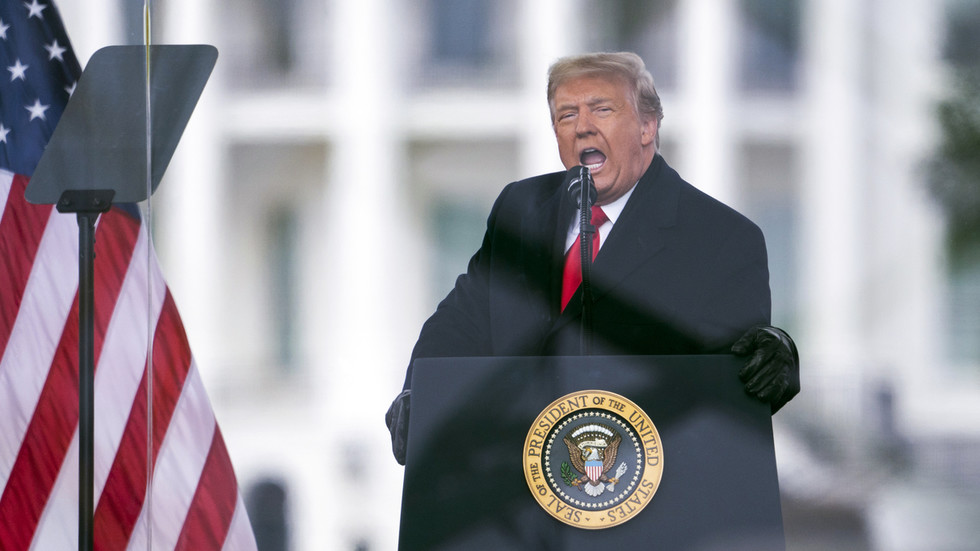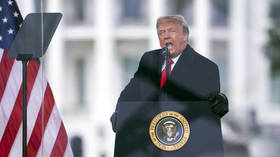
The former president insists that he is immune from prosecution over his speech before the January 6 riot

Donald Trump speaks during a rally protesting the electoral college certification of Joe Biden as president in Washington, DC, January 6, 2021
The US Department of Justice has told an appeals court that former president Donald Trump is not immune from civil action over his alleged incitement of the January 6, 2021 riot on Capitol Hill.
The US Court of Appeals in Washington, DC is currently considering whether multiple private lawsuits against Trump – brought by police officers and members of Congress – have the legal standing to go to court. The plaintiffs argue that Trump’s speech on the day of the riot – in which he urged his supporters to march to the Capitol and “fight like hell” to protest his election loss, but to do so “peacefully and patriotically” – incited the fracas that followed.
In a legal filing on Thursday, the Justice Department argued that Trump’s speech could be examined for evidence of incitement.
“Speaking to the public on matters of public concern is a traditional function of the presidency,” the department’s lawyers wrote. “But that traditional function is one of public communication. It does not include incitement of imminent private violence of the sort the district court found that plaintiffs’ complaints have plausibly alleged here.”

Read more
Trump previously argued that he was acting in his capacity as president when he addressed his supporters that day, and that he therefore enjoyed immunity from prosecution over the speech. However, a district court judge ruled last year that the speech fell outside the scope of his presidential duties, prompting Trump to bring the case to the appeals court.
Among the lawmakers suing Trump are Reps. Eric Swalwell, Pramila Jayapal, and Maxine Waters, all of whom are Democrats and vocally opposed Trump long before the riot.
More than 100 police officers say they were injured during the riot, while four Trump supporters died. Two died of natural causes and one of an accidental overdose, while Air Force veteran Ashli Babbitt was shot by a Capitol Police officer near the entrance to the House chamber.
In addition to the civil lawsuits, Attorney General Merrick Garland appointed a special counsel last year to investigate whether Trump could be prosecuted for “efforts to interfere with the lawful transfer of power following the 2020 presidential election.”




